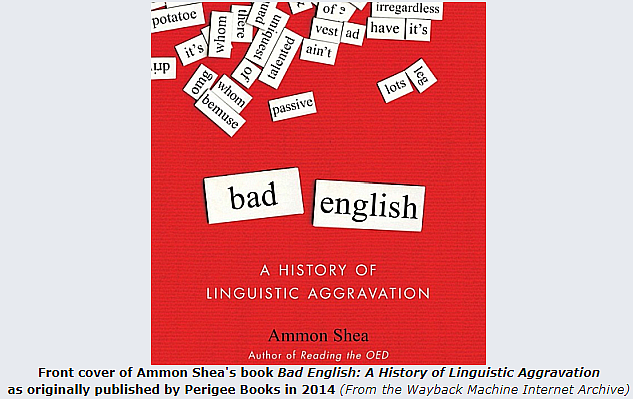In a sense, editors of business and journalistic prose are in the same league as medical doctors, surgeons, dentists, and chiropractors who treat ailing patients, excise diseased body tissue, straighten fractured bones and limbs, or extract rotten teeth and fill up ugly cavities.
The only difference is in what they perform for their clients. Medical and health-care practitioners work to restore their patient’s health and well-being; editors work on masses of thought that have congealed into words and strings of sentences. With luck they could be turned into clear, well-functioning expositions by just compacting occasional loose prose fiber, but at times they could be so mixed up and obtuse as to defy the act of editing itself.
An editor often gets the overpowering urge to kill off bad prose altogether as an act of mercy. But the thing is that the only word surgeons on earth who can administer euthanasia on terminally ailing prose are the newspaper and magazine editors. Those who must earn their keep helping refine or straighten business, professional, and academic prose primarily for institutional or personal use couldn’t engage in such a cruel practice. Often, in fact, they must perform nothing less than acts of resurrection on prose that’s perfectly dead or comatose.

So huge is the volume of bad prose churned out by our society every day that a competent editor need not fear losing his livelihood—only his patience and sanity. The imprecision syndrome thrives not so much on lack of research or enthusiasm on the part of the writer but on bad English, bad thinking, and plain mental laziness. It gnaws not only at educational writing and academic dissertations but even when they are subsequently reported in newspaper and magazine reports.
There’s so little precision in thought and language—and not enough evidence of intellection and imagination—in some of the published works that fill up the tons of newsprint that roll out of the presses or appear in digital social media every day.
Take this passage from a supposedly expert dissertation serialized sometime ago by one of the leading newspapers:
“The trend of an emerging economic and social world may be pushed backward by counterforces from within which may be national cultural traditions. Resistance and conflicts may continue to simmer under the thin veneer of nationalism and a myopic view of cultural traditions as a kind of motionless stonewall or a wrong historical sense focuses only on the remoteness of the past including the present… However, it is not unbridled license for an egocentric calculation and development of anti-axiological values and a resolute anti-establishment disposition of new world order heading for a global village.”
Even after rereading the passage many times, it remains tough to fathom what profound insights about culture that exposition is telling us. But the greater mystery was why the newspaper running the series had not bothered to do substantive editing on the incredibly obtuse and incomprehensible material, or at least to ask the authors to boil it down so more people can benefit from its wisdom.
Then take a look at this advertising copy for a corporate culture-building course by a learning institute that should have known better about language:
“Values are the most important glue that keep the organization together. Values determine the true worth of the company, as it reveals the nature of its people. Amidst the challenging milieu, upshots of values and culture, which are in constant motion, slowly define the distinctiveness of the organization. To forge commitment, is to discover the culture and what holds the people together in values.”
Too bad that not many readers could figure out what that ad means to say, so they obviously couldn’t decide whether that course is worth attending.
-------------------------
This is a condensed and updated version of an 849-word essay by the author in 2005.This essay, 2122nd of the series, appears in the column “English Plain and Simple” by Jose A. Carillo in the Campus Press section of the October 27, 2022 digital edition of The Manila Times
, ©2022 by the Manila Times Publishing Corp. All rights reserved.Read this essay online in
The Manila Times:
The age of imprecision(Next week:
Developing our power over language) October 27, 2022
Visit Jose Carillo’s English Forum, http://josecarilloforum.com. You can follow me on Facebook and Twitter and e-mail me at j8carillo@yahoo.com.